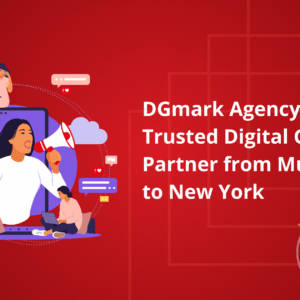Introduction
E-commerce marketing is the cornerstone of any successful online business. In an era where the digital landscape is constantly evolving, understanding and implementing effective e-commerce marketing strategies is crucial. This is especially true when considering the burgeoning India e-commerce market size, which is rapidly expanding and offering new opportunities for businesses to thrive. In this comprehensive guide, we’ll explore what e-commerce marketing entails, delve into various strategies, and examine different models and types that can propel an online business to new heights.
Understanding E-commerce Marketing
What is E-commerce Marketing?
At its core, e-commerce marketing is a set of tactics and techniques used to promote online businesses, driving sales and increasing brand awareness. It encompasses a broad range of activities, including search engine optimization (SEO), email marketing, social media marketing, and more. But what is digital marketing in e-commerce specifically? It refers to the digital strategies used exclusively in the online retail sector to attract and retain customers.
E-commerce Vs. Traditional Marketing
The fundamental difference between traditional and e-commerce marketing lies in their mediums and approaches. E-commerce marketing leverages digital channels and is more data-driven, allowing for more targeted and personalized marketing efforts.
Key E-commerce Marketing Strategies
Search Engine Optimization (SEO)
SEO is crucial in e-commerce marketing, as it ensures that your online store appears prominently in search engine results, attracting organic traffic. This involves optimizing website content, using relevant keywords, and ensuring a mobile-friendly site design.
Content Marketing and Brand Storytelling
Content marketing in e-commerce involves creating and sharing valuable content to attract and engage a target audience. Brand storytelling goes a step further by weaving compelling narratives that resonate with customers, thereby building brand loyalty.
Email Marketing
Email marketing remains a powerful tool in e-commerce, used for engaging with customers and promoting products. It’s a direct way to communicate offers, news, and personalized recommendations.
Social Media Marketing
Utilizing platforms like Facebook, Instagram, and Twitter, social media marketing in e-commerce involves creating engaging content and ads to interact with and attract customers.
Pay-Per-Click (PPC) Advertising
PPC advertising is a model where marketers pay a fee each time their ad is clicked. It’s an effective way to drive traffic to an e-commerce site, particularly for specific campaigns or product promotions.
Affiliate and Influencer Marketing
Partnering with affiliates and influencers can amplify your marketing efforts. These partnerships leverage the audiences of influencers or affiliate networks to drive sales.
Also Read: Google Ads Vs Facebook Ads
E-commerce Business Models
Business to Consumer (B2C)
The B2C model is the most common e-commerce model, where businesses sell directly to consumers. Marketing strategies here focus on customer engagement and retention.
Business to Business (B2B)
B2B e-commerce involves transactions between businesses. Here, the marketing strategies are tailored to address the needs of other businesses, focusing on value, ROI, and long-term relationships.
Consumer to Consumer (C2C)
In the C2C model, consumers sell directly to other consumers, often facilitated by a third-party platform. Marketing strategies here often rely on platform visibility and user-generated content.
Types of E-commerce Marketing
Display Advertising
Display advertising involves banners, pop-ups, and retargeting ads on websites. These visually appealing ads can be targeted to specific demographics, making them an effective e-commerce marketing tool.
Video Marketing
Video marketing uses product demonstrations and customer testimonials to engage potential customers. It’s an interactive way to showcase products and build trust.
Mobile Marketing
With the increasing use of smartphones, mobile marketing has become crucial. This includes mobile-optimized content and apps designed to enhance the shopping experience on mobile devices.
Social Commerce
Social commerce is the integration of e-commerce directly into social media platforms. It allows users to complete purchases without leaving the social media app, streamlining the shopping experience.
Challenges in E-commerce Marketing
Competition and Market Saturation
The e-commerce space is fiercely competitive, with numerous businesses vying for customer attention. Standing out in a saturated market requires unique and innovative marketing strategies.
Consumer Behavior
Understanding and adapting to the ever-changing consumer behavior is a significant challenge. E-commerce businesses must be agile and responsive to these changes to remain relevant.
Technical Challenges
The technical aspect of e-commerce, such as website uptime, load speed, and user interface, plays a vital role in marketing. A seamless user experience is critical for the success of any e-commerce marketing strategy.
Measuring E-commerce Marketing Success
Key Performance Indicators (KPIs)
KPIs like conversion rate, customer acquisition cost, and average order value are essential for measuring the success of e-commerce marketing efforts.
Analytics and Reporting
Using analytics tools, e-commerce businesses can track the performance of their marketing strategies and make data-driven decisions to optimize them further.
Future Trends in E-commerce Marketing
Artificial Intelligence and Machine Learning
AI and machine learning are set to revolutionize e-commerce marketing by enabling personalized customer experiences and predictive analytics.
Personalization
The trend towards personalization in e-commerce marketing is growing. By personalizing the shopping experience, businesses can significantly increase customer engagement and loyalty.
Sustainability and Ethics
There is an increasing demand for sustainability and ethical practices in e-commerce. This trend is influencing marketing strategies, as consumers are more likely to engage with brands that align with their values.
E-commerce Marketing Education and Resources
E-commerce Marketing Course
For those looking to deepen their knowledge, numerous e-commerce marketing courses are available. These courses offer insights into the latest strategies and tools used in the industry.
E-commerce Marketing Agency India
In India, where the e-commerce market is rapidly growing, partnering with an e-commerce marketing agency can provide businesses with expert guidance and tailored strategies to navigate the complex landscape.
Conclusion
E-commerce marketing is a dynamic and essential aspect of running a successful online business. By understanding the various strategies, models, and types of e-commerce marketing, businesses can effectively navigate the digital landscape. The future of e-commerce marketing is bright, with new technologies and trends continually emerging.
References and Further Reading
- List of sources and additional resources for readers who wish to explore more about e-commerce marketing.








